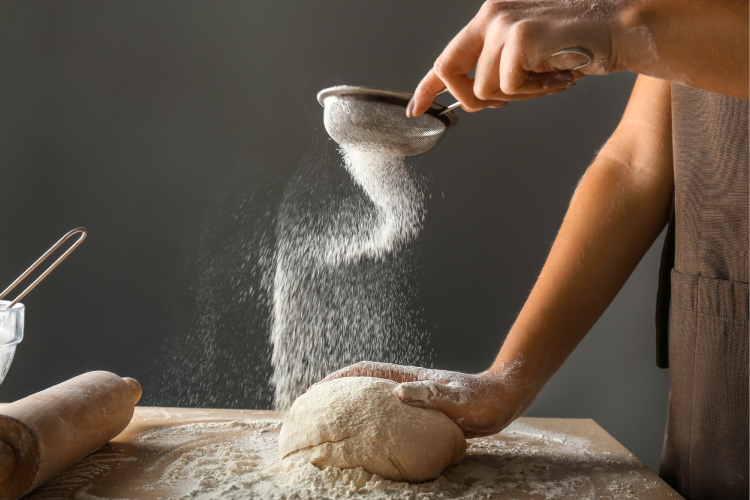Do you think that you can bake things without using flour? It is impossible to bake your cake or bread without flour. If you go to a grocery store and walk down the bakery aisle, you can find a wide variety of baking flour made from different materials. Thus, baking flour plays a vital role in baking a cake. The major process of baking flour is to develop a specific structure. The proteins in the flour combine with water to form a component called gluten. Thus, gluten helps a batter or dough have an elastic network. So, these gluten networks release sufficient air that makes them rise while baking. The cake baking classes in Chennai will teach you in-depth baking ideas for better understanding. However, for now, a clear guide to different types and uses of baking flour is discussed below.
Generally, protein differentiates flour from one another. If the flour contains 10%-14% protein, it is called “hard wheat.” If the flour contains 5%-10% protein, it is called “soft wheat.” So,
More protein = More gluten = More strength = More volume.
In turn, it means the texture becomes chewier. Thus, hard wheat flour is preferable for bread and yeasted products where strength is predominant. While for pastries and cakes, you need a lighter flour that is tender and flaky.
All-purpose flour:
It is the most commonly used flour for baking. If a recipe calls for “flour,” it means “all-purpose flour.” This flour is made from soft and hard wheat and contains about 10%-12%. It is one of the most preferred types of flour compared to other flour baking products and is used in making crusty pies, fluffy cakes, and chewy bread. If you are a student of baking courses in Chennai, you may know that all-purpose flour is the best to match every baking recipe.
Cake flour:
Cake flour is another type of flour used by bakers for making moist and tender cakes. This flour contains 5%-8% protein which is best for making cakes, muffins, biscuits, and pies. The cake flour is generally chlorinated before it reaches the store. Chlorination is a process where the gluten proteins are refined into fine particles and weakened to absorb more sugar and liquid. Thus, it helps the baking products to remain tender and moist for a longer time. You can even join the professional bakery courses in Chennai to learn more about baking secrets.
Pastry flour:
The pastry flour is made from “soft wheat” and contains around 8%-9% protein. Hence, pastry flour is a combination of all-purpose flour and cake flour. You can even make the pastry flour at home by mixing 2/3 of cake flour and 1 and 1/3 cup of all-purpose flour. This flour is ideal for making tarts, pies, cookies, and many more.
These are the different types and purposes of flour that are used in baking. Baking Class offers you the best bakery training in Chennai, where you can learn things practically. So, enroll to enlighten yourself with baking knowledge.


